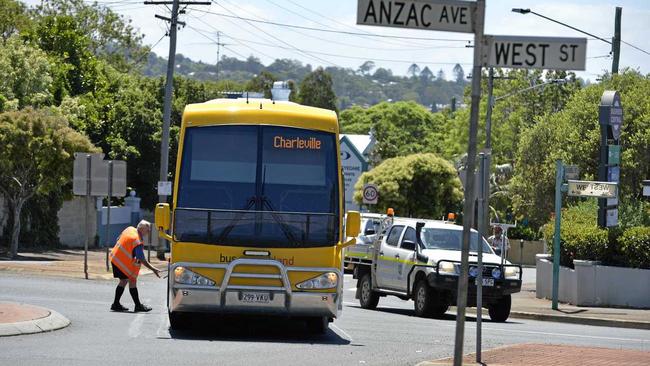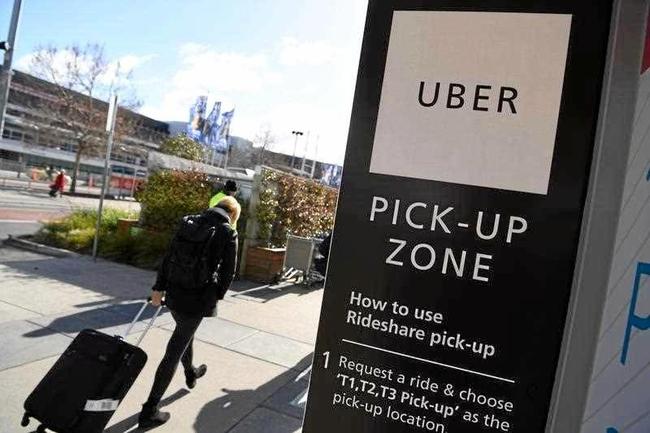What's the back-up plan if the internet goes AWOL?
A series of "disruptions” in the digital realm recently forces Colin Claridge to ask: why are we quick to ditch common sense when embracing the online world?

Opinion
Don't miss out on the headlines from Opinion. Followed categories will be added to My News.
MANKIND'S technological advancements over the past century have been quite remarkable. From powered flight to space and from chalkboards to laptops.
We've certainly made a future that would appear unrecognisable to our great grandparents. But when it comes to common sense, our forebears often had it all over us.
I mean, how else can one describe the decision of whoever it was in Queensland Transport to replace bus shelters with structures not fit for purpose? Shelter they don't.
From rain that finds perforated metal walls no barrier to drenching anyone unfortunate enough to be waiting for a bus to roofs that don't extend far enough to either shelter said hapless bus users from aforementioned rain or from the summer sun; that quickly turns metal seats into a barbecue grille.

Is it any wonder on any given summer afternoon, one will find people standing in the shade BEHIND rather than IN these structures.
And where was common sense when someone on the Council decided that people really didn't need the shade once provided by the adjacent tree; which has now been lopped back so severely as to no longer be of any use.
Common sense would dictate that what I have been told is a Swedish-designed structure is completely unsuitable for the ravages of Queensland weather.
The IKEAisation of bus shelters began being rolled out some six or so years ago, replacing bus shelters which did actually shelter.
One just wonders if Queensland Transport opted to ignore the numerous emails pointing to their folly.
It just seems sometimes that our enthusiasm to embrace everything new and shiny comes with a disregard to common sense.
In recent days, we've seen faults in services provided by Telstra cause widespread annoyance and inconvenience and potentially a public safety issue. One wonders if this is what is actually meant by "digital disruption”.

Authorities in South Australia lost track of more than 700 offenders when the Telstra fault rendered ankle bracelets inoperable.
Thankfully, we don't put murderers on home detention but the situation exposes the folly of man becoming too reliant on the digital age without ensuring that fail-safe systems are in place.
As often as many under the age of 40 no longer see a use for actual physical cash, the events of last week showed exactly how lost they become when they can't swipe to their little hearts' desires.
Common sense would dictate that people should carry some cash on their persons for just such system failures... but noooooo.
But we over 50 should resist the temptation to smirk because if the millennials have their way, they'll make it a mission to pressure Government to do away with the cost of printing notes and coins altogether.
Common sense would dictate that (particularly as the Telstra outages show) the safeguards and back-up systems against failures do not exist and no one will ever be able to guarantee that they ever will.
This week's announcement by the Federal Government that longer jail sentences and bigger fines will be imposed on anyone hacking into the medical e-records system does nothing to allay fears concerning the system's security.

Threats of jail and fines are all well and good but will be of no comfort to any patient who gets hacked. Common sense would dictate that if you are not prepared to make the system as secure as Pine Gap, then don't implement it in the first place.
Technology is wonderful when it works. But as we move ever increasingly closer to artificial intelligence replacing the human element in many aspects of the economy, has anyone designed an algorithm for common sense?
Who currently wandering the corridors of Parliament is capable of guiding us through the digital age? The Queensland Government proved how incapable it was in looking after that group of Australian taxpayers called taxi drivers when the US-based corporation Uber muscled its way into the space.

And one wonders just how capable it will be in ensuring that Uber's latest desire to replace the human element of its business costs with driverless vehicles comes with the necessary safeguards. Because one just doesn't want to be in one of those things if suddenly hacked.
We therefore look to our political lords and masters to use common sense as they negotiate advancements in technology and take full regard to the pitfalls.
Should we be afraid?


